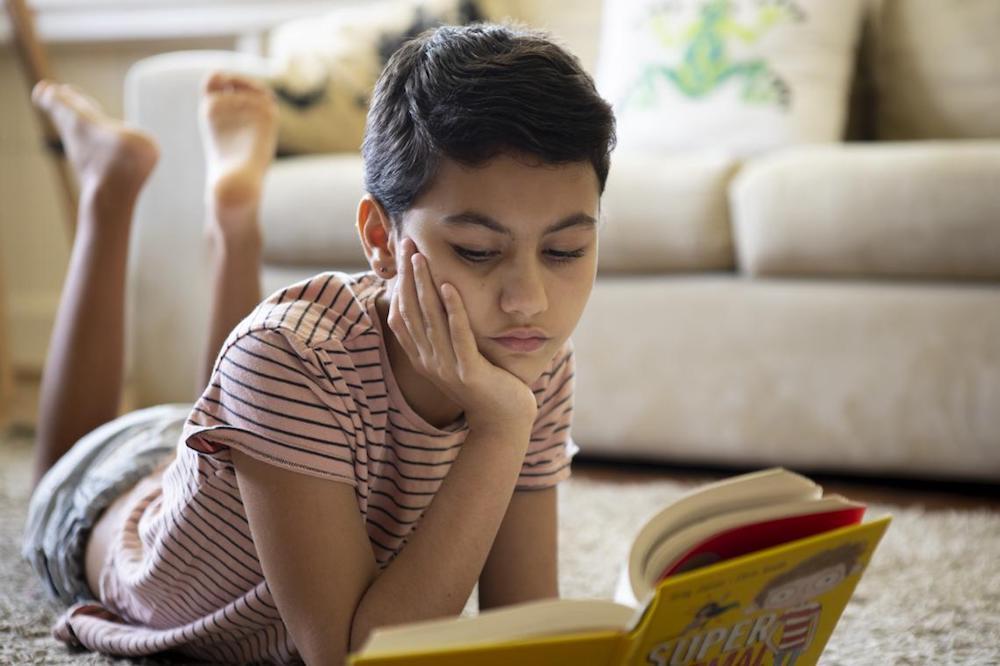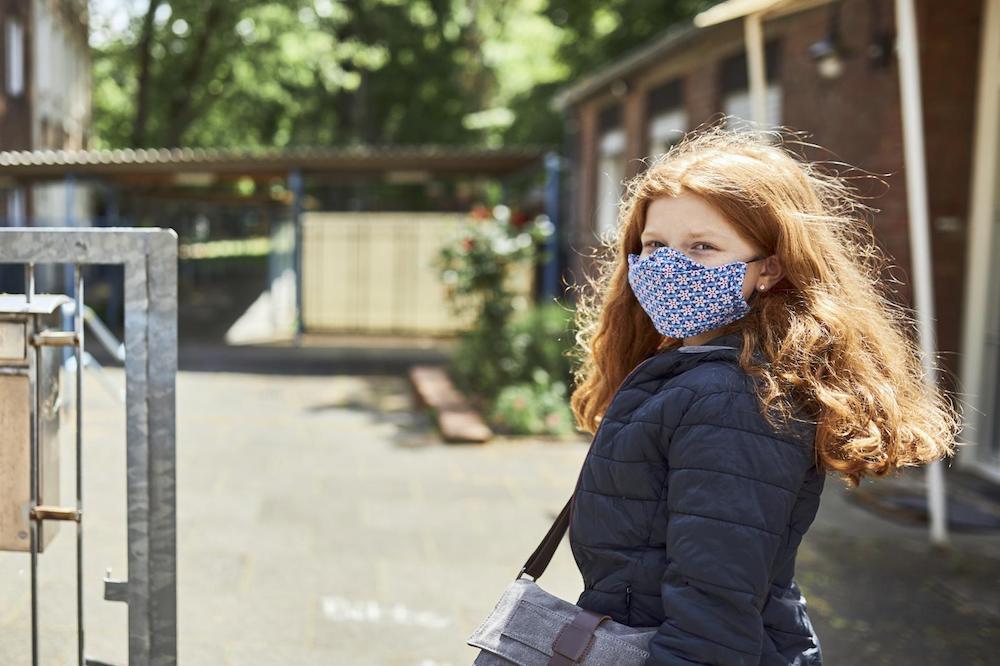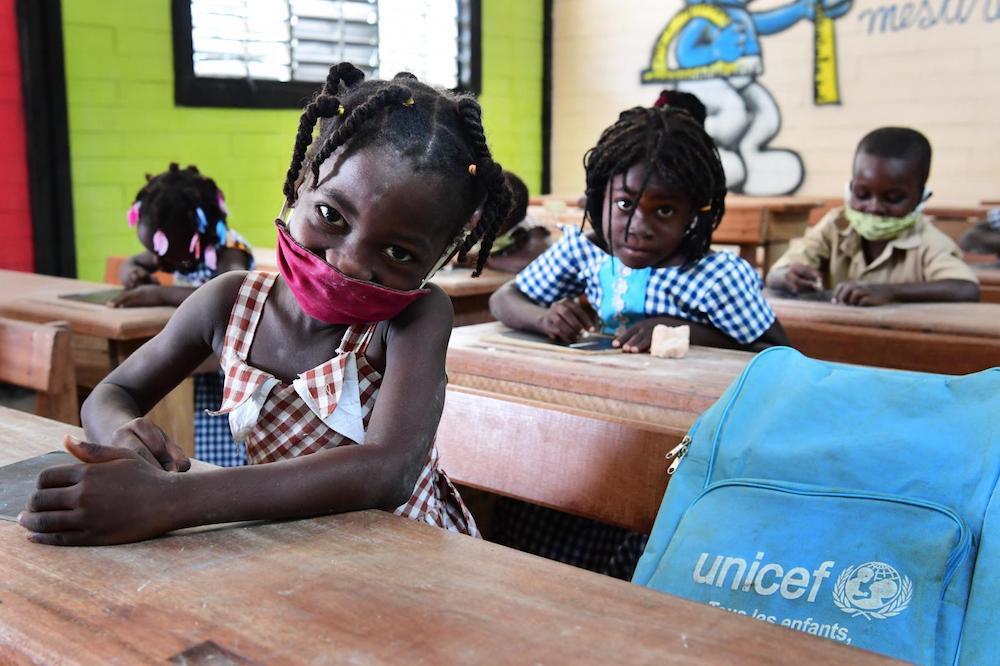
Five things you need to know this week about global education

Child trafficking, Girls' education
Our roundup includes a call from ex-world leaders for action to prevent a "Covid generation" - and the latest news on countries reopening schools.
World leaders urge action to avoid 'Covid generation' with no education
A group of former world leaders has called for urgent action to prevent the pandemic creating a “Covid generation” – leaving tens of millions of children with no hope of an education.
They urged governments to invest in catch-up programmes to prevent irretrievable damage to children’s futures, in a letter to G20 heads, governments, the World Bank, IMF and development banks.
The plea was signed by 275 ex-leaders, economists and educationalists. They included former UN Secretary-General Ban Ki-Moon and ex-British prime ministers Gordon Brown – the UN Special Envoy for Global Education – Tony Blair and John Major.
They said: “We cannot stand by and allow these young people to be robbed of their education and a fair chance in life.”
Saying they were particularly concerned about an estimated 30 million children who may never return to school, the letter added: “For these, the world’s least advantaged children, education is often the only escape from poverty – a route that is in danger of closing. Many … are adolescent girls for whom being in school is the best defence against forced marriage and the best hope for a life of expanded opportunity.”
Urgent action is needed to prevent the global health crisis creating a "COVID generation". We need
???? To protect front-line education spending
???? Increase aid for education through debt relief
???? The IMF should issue $1.2 trillion in Special Drawing Rightshttps://t.co/8rVIRYMjD6— Theirworld (@theirworld) August 19, 2020
The letter – also signed by Theirworld President Justin van Fleet – said many other out-of-school children risk being forced into exploitative and dangerous labour.
More than a billion children are still out of school because of lockdowns, the letter said. While many have benefited from e-learning, lack of internet access has left the poorest shut out of education. School closures have also increased hunger, with 300 million children losing free school meals.
The former leaders warned that education spending in low and middle-income countries faced cuts of $100 billion to $150 billion. They urged G20 leaders, national governments and global financial institutions to back an emergency plan including the protection of frontline national education budgets.
They also called for more support for online learning, personalised learning, teacher training, cash assistance for poor families and safer schools that meet social distancing rules.
Mixed picture as more countries reopen schools

An increasing number of children are returning to the classroom (UN Photo)
Children at Saudi Arabia’s public schools will be educated via distance learning as a precaution against coronavirus for the first seven weeks of the new term, which starts on August 30. The rest of the term will be evaluated during that time, said education minister Dr Hamad bin Mohammed Al Shaikh.
The United Arab Emirates said parents can choose whether their children attend classes in person or online for the first term, which also begins on August 30.
Ireland is set to reopen schools on August 27. Prime Minister Micheal Martin said: “Schools are so important to children in general, to society, to the economy as well, that we want our schools to reopen, and our schools will reopen.”
Belgian schools will reopen on September 1, when the academic year starts, with children above 12 and teachers required to wear masks. Prime Minister Sophie Wilmes said: “It is very important that children go to school.”
In the United States, New York City Mayor Bill de Blasio confirmed his commitment to reopen schools for in-person learning next month. In Texas, where many schools began in-person classes this week, a Dallas school district official said all 155,000 students would be taught online for at least the first month of the new term. Houston, San Antonio and Austin have also decided to begin the academic year with online-only classes.
Salute to everyday education heroes
Many children with autism lost access to education and other support services due to #COVID19. To support these children and their families, #RealLifeHeroes at @AGVFAutism set up an app to provide info and resources to help support their development at home. #WorldHumanitarianDay pic.twitter.com/AnPveTaHG5
— Global Business Coalition for Education (@gbceducation) August 18, 2020
World Humanitarian Day 2020 was marked this week by a tribute to “Real Life Education Heroes”.
The Global Business Coalition for Education – an initiative of Theirworld – has used its Rapid Education Action (REACT) platform to mobilise corporate resources to ensure learning can continue outside of the classroom during the pandemic.
It highlighted some ordinary heroes who are working to help children and young adults continue learning.
They included Zain Shorbaji, who works with A Global Voice for Autism and who talked about the impact of the lockdown in Jordan for autistic children and children with disabilities. The organisation launched a mobile app to help parents teach their children.
Call for safe restart of more African classes

The pandemic has led to the disruption of learning opportunities for millions of students in sub-Saharan Africa (UNICEF / Dejongh)
School closures aimed at keeping students safe from Covid-19 are harming them in other ways, the World Health Organization (WHO) and UNICEF said as they urged African governments to promote the safe reopening of schools.
They said the impact includes poor nutrition, stress, increased exposure to violence and exploitation, childhood pregnancies and overall challenges in mental development of children.
A WHO survey of 39 countries in sub-Saharan Africa found that schools are fully open in only six countries. They are closed in 14 countries and partially open (exam classes) in 19 others. Around a dozen countries are planning to resume classroom learning in September.
Dr Matshidiso Moeti, WHO Regional Director for Africa, said: “We must not be blindsided by our efforts to contain Covid-19 and end up with a lost generation. Just as countries are opening businesses safely, we can reopen schools.”
Ex-child workers on bikes rescue victims
Dozens of children have been rescued from traffickers in the last week thanks to tip-offs from the bicycle patrol volunteers, a scheme led by Nobel laureate @k_satyarthi. https://t.co/GmouRRTcRG
— Thomson Reuters Foundation News (@TRF_Stories) August 19, 2020
Dozens of children have been rescued from traffickers after Indian authorities were tipped off by former child workers patrolling on bicycles under a new scheme spearheaded by Nobel laureate Kailash Satyarthi.
About 50 volunteers are patrolling the eastern state of Bihar, home to some of India’s poorest people and a trafficking hotspot. About 60 children have been rescued and at least nine traffickers arrested in the last week.
“I got a tip-off from a villager that children were getting ready to leave for Delhi. I passed on the message to my seniors … by midnight the children were rescued,” said Mukesh Mukhiya, 24, a bicycle patrol volunteer. “I was a child labourer myself and worked on farms. They must go to school,” Mukhiya, who was rescued at the age of 11.
Trafficked children are denied the chance to reach their full potential because they don’t get an education or have the freedom to make their own choices. One in four victims of modern slavery are children, says the International Labour Organization.
More news

